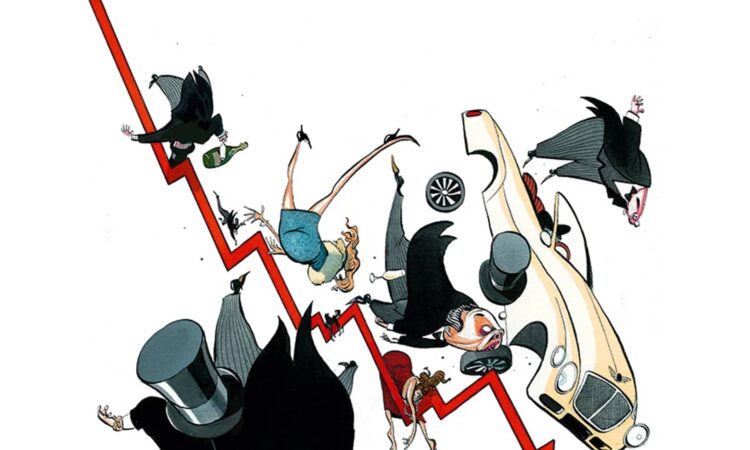
The power of Bitcoin to make and lose fortunes in a very short time is unmatched in history. But could the biggest boom and bust be yet to come? Since January the value of Bitcoin has staged a remarkable recovery, and is now back trading at or even above the highs it reached in 2022. That is all the more remarkable given that its recovery coincided with the trial, and eventual conviction and imprisonment of Sam Bankman-Fried who, following the collapse of his cryptocurrency exchange FTX, is now reported to be on a new venture: trading grains of rice with his fellow inmates at the Brooklyn Metropolitan Detention Center. For his customers, Bitcoin turned into the scam many of the cryptocurrency’s critics feared it would be. So how come anyone wants to buy it now?
The easier it becomes to buy Bitcoin, the greater potential for financial disaster
The answer, it seems, is something called the Grayscale Bitcoin Trust, an exchange-traded fund which has made it much simpler for retail investors to hold Bitcoin – or hold it by proxy. Grayscale has been fighting regulators for years for the right to offer such a fund, and in January finally won its case. Is that a good thing? Yes, if you are looking at it purely from the point of view of levelling the playing field between ordinary retail investors and their more sophisticated brethren who know how to do things that would never occur to the more conservative of us: such as downloading a ‘bitcoin wallet’. It seems a rather less good development if you are looking at it from the potential effect on the financial stability of millions of ordinary households. Gambling on Bitcoin has, in effect, just gone mainstream. It is as if a bookmakers has just been allowed to set up shop in every living room in the country.
Whether Bitcoin is rising or falling, or who is buying or not buying it, nothing alters a basic fact: that Bitcoin is a classic zero-sum game. Large numbers of people can make vast paper fortunes by bidding up the price, but they cannot all realise those fortunes, because if everyone sells out the price collapses to zero. In that situation, those who were quick to sell would become rich at the expense of those who were slow to sell. Bitcoin earns no income and has no intrinsic value – it is, for all its cleverness, really nothing more sophisticated than a tech reinvention of the Ponzi scheme.
The easier it becomes to buy Bitcoin, the greater potential for financial disaster – and the transfer of wealth from the gullible to the fleet of foot. So far, however, there has been no spike in the price of Bitcoin as there has been in past phases. The price of a Bitcoin galloped up from $26,000 last October to $73,000 in March, but having established a new high it made little further progress. For the past two months it has been bouncing around between $60,000 and $70,000. That might provide some hope that we won’t have a renewed speculative mania – although I wouldn’t count against it. Bitcoin has already achieved what tulip bulbs and South Sea Company shares failed to do: come back for a second and third bubble. The ability to buy Bitcoin through an exchange-traded fund may yet inflate a fourth – with the power this time to destroy the wealth of an even larger number of people.







